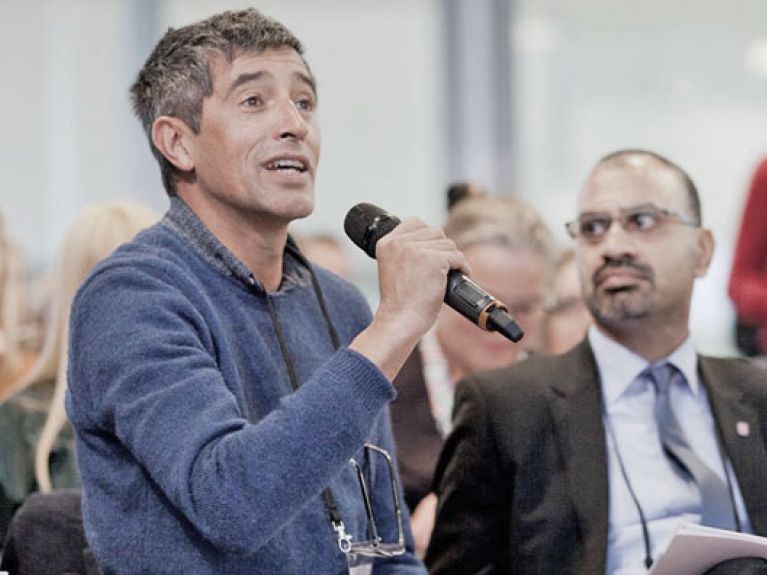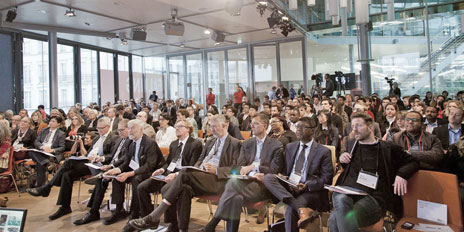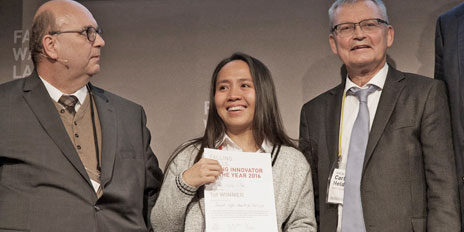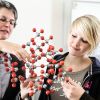The Falling Walls Conference in Berlin
At the Falling Walls Conference in Berlin, which is held on the anniversary of the fall of the Wall, leading international researchers, hopeful up-and-coming scientists and outstanding start-up entrepreneurs show which breakthroughs are on the horizon.

Why do people actually become ill? Why are 46 million people still living in slavery today? What opportunities and dangers are associated with the new CRISPR gene editing technology? Sixteen top international researchers have been presenting their research findings on questions like these in Berlin. In a series of short lectures at the Falling Walls Conference, on 9 November, the date of the fall of the Berlin Wall, they explained which breakthroughs are imminent in the natural sciences and humanities, as well as business and technology.

Randy Nesse, one of the most prominent pioneers of evolutionary medicine, was among the guests. He is deeply involved in investigating the real causes of many illnesses. His research shows how biological factors dating from the Stone Age still influence our health today. In his short lecture, British researcher Kevin Bales focused on a subject that many no longer regard as relevant today: slavery. He showed how modern slavery has become a worldwide business and how closely it is linked with global challenges like climate change. The ethical aspects of new technologies are the subject of Canadian philosopher Françoise Baylis. She is interested in the conflict that is being created by new technologies like CRISPR gene editing: high hopes of treatments for previously incurable illnesses, on one hand, and fears of the abuse of genetic optimisation, on the other.
Falling Walls events are also bringing young up-and-coming researchers together in the days around the anniversary of the fall of the Wall. One hundred young researchers from over 50 countries already presented their ideas at the Falling Walls Lab on 8 November. They each had only three minutes to persuade the panel of judges, which was chaired by Carl-Henrik Heldin, Chairman of the Nobel Foundation. The ideas included, for example, a new generation of edible plants with an integrated vaccine and a technology that makes it possible to extract drinking water from the atmosphere. Dang Huyen Chau from Vietnam was selected as winner of the Falling Walls Lab: her subject was the extraction of fuel from coffee grounds.

Ryan Awori from Kenya was also among the young researchers at the Falling Walls Lab. The 27-year-old microbiologist is working on a new antibiotic against multidrug-resistant microbes. “These microbes are a big problem in Kenya,” says Awori. They cause over 50% of the infections of open wounds. And many of the antibiotics on the market in Kenya are no longer effective against them. The antibiotic Awori is researching could help many people in the future. In initial trials it worked better that many antibiotics that are currently in use.
Alongside the up-and-coming researchers at the Falling Walls Conference, 23 companies also competed for the title of Science Start-up of the Year 2016. The winner was the biotechnology start-up Vaxxilon. The company is engaged in research and development on new kinds of vaccines. And it holds the rights to several vaccine candidates for pathogens for which there are currently still no approved treatments available – a perfect example of a business model that addresses an urgent problem.

